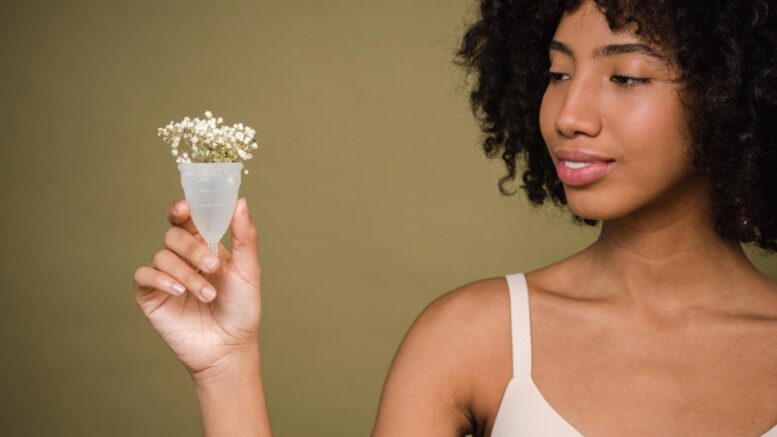In one well-known viral internet story, a doctor said that period pain can be as painful as a heart attack. For women who suffer from intense menstrual cramps and contractions, this isn’t too hard to believe. Add the bloating, headaches, breast tenderness, and other symptoms, and having your period can be a real nightmare.
Back in the day, some offices and restrooms had lounges where menstruating women could rest on couches or cots. And recent movements have pushed for menstrual leave and other forms of respite for people on their periods. But for now, when you have your period, you’re generally expected to push through it and get back to work.
The good-ish news is, there are ways to keep your periods healthier, lighter, more regular, and more manageable. With a few simple changes, you can make your periods a little less taxing on your body (and psyche). Here are some tips, best practices, and products to make your periods a little bit less of a pain.
Hormonal Contraceptives
If you have heavy, long-lasting, painful, or unpredictable periods, consider going on oral contraceptive pills. Combination birth control pills like junel fe can make your flow lighter, shorter, more comfortable, and more regular. This is because the hormones — estrogen and progesterone — in birth control stop ovulation.
On birth control pills, instead of having ordinary periods, you’ll likely experience some bleeding during your placebo week. This is the week each month you take pills that don’t actually contain any hormones. The withdrawal bleeding that occurs during this week isn’t technically a period. But it mimics the regular monthly flow we’ve all come to know and … well, not love.
In addition to stopping ovulation, birth control also decreases your body’s prostaglandin production. These are the chemicals responsible for causing painful period cramps in menstruating people. Typically, people start experiencing relief from cramps within six months of going on hormonal contraceptives.
The pill isn’t the only hormonal contraceptive that can help make periods easier to manage. The shot, implant, patch, ring, and Hormonal IUDs all serve the same function. For instance, with some methods, like Nuvaring, you can skip your period for several months at a time. And some people who have IUDs inserted eventually stop getting their periods entirely.
Alternative Menstrual Products
There’s no scientific evidence to support the idea that tampons can make periods or cramping more painful. But, anecdotally, many people say their discomfort is worse when they have a tampon inserted. The sensation of a tampon in the vagina could increase the pain of vaginal cramping associated with menstruation.
Tampon use also promotes vaginal dryness, because tampons absorb all different fluids in the vagina. And the materials in tampons can stick to the vaginal walls, causing abrasions during removal or encouraging bacterial growth. Most concerning, of course, is the risk of toxic shock syndrome (TSS) from tampon use. This is a more serious bacterial infection that can become life-threatening.
For a healthier — and more environmentally friendly — period, consider alternative menstrual products from natural, organic, and/or reusable materials. Organic tampons and pads made from natural cotton are a good start for dipping your toe into alternative methods. But it’s not clear whether they have any actual medical benefits — or whether they’re just slightly better for the planet.
If you want the most sustainable and healthy period, go with reusable menstrual products from sustainable brands. These include menstrual cups like Mooncup and Diva Cup, reusable cloth pads and pantiliners, and period panties like Cora and Modibodi. Menstrual sponges are also sustainable and reusable, but may come with a higher risk of infection.
Hygiene and Discomfort
For a healthier period, follow package instructions on when to change your tampons, pads, and other menstrual products. Never leave a tampon in for more than eight hours, and change disposable pads at least every 4-8 hours. Disinfect reusable products according to directions, such as by rinsing and boiling your menstrual cup between uses.

If you have irregular periods, consider tracking your cycle with an app on your phone or a simple calendar. Being aware of your period can help avoid leaks and ensure you have menstrual products on hand when needed. It’s a good idea to carry extra disposable products with you for emergencies or in case a friend needs them. But it should go without saying that reusable menstrual products should never be shared.
Popular wisdom used to say that people shouldn’t take baths or swim when on their periods. But it’s actually perfectly safe to swim or bathe while menstruating, and hot water can even relieve cramps. Likewise, some people fear sex or masturbation when on their periods, but both activities are perfectly safe. Plus, orgasms are one of the very best remedies for period pain.
Other remedies for cramps and period pain include over the counter pain relievers like Midol and Aleve. You can also use a heating pad or hot water bottle if you don’t want to get in a hot bath. Herbal teas, anti-inflammatory foods, and drinking plenty of water can also help cramps and period symptoms. Maintaining a routine with regular exercise and a balanced diet can help reduce period pain over time.
Self-Care During Menstruation
Getting your period is never easy. During and before menstruation, you may need lots of extra rest, sleep, and self-care. You may need to take additional measures to get comfortable, like avoiding stressors or taking a day off from work. Don’t feel bad if your periods seem more difficult to manage than those of your friends’ or relatives. Everyone’s body is different, so listen to yours, give it what it needs, and be patient with yourself.
